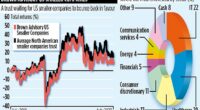
On my return to Blighty after a ten-year assignment as a Washington correspondent way back in 1989 I had two personal priorities. Find suitable schools for my young family and look for a bigger home which could comfortably accommodate three children, having left the UK with just one 18-month-old.
Climbing up the ladder in Margaret Thatcher’s home-owning democracy meant taking on a whopping great mortgage at a very high interest rate, which I could ill-afford. As a supposedly economically sophisticated individual, I looked for an escape route to scythe my monthly payments, as doubtless some struggling homeowners will be seeking to do today.
So began my terrifying saga of a low-interest, foreign currency mortgage exotically denominated in Japanese yen.
The housing market in that summer of 1989 was blazing away. The effort by Tory Chancellors Nigel Lawson and Norman Lamont to shadow the deutschmark, and perhaps join the Exchange Rate Mechanism (ERM), the precursor to the eurozone, sent the Bank of England’s base rate to a high of 14.88 per cent – which puts the current 6 per cent in perspective.
The battle against inflation then, as in the 1970s, makes the current struggle of Governor Andrew Bailey and Prime Minister Rishi Sunak to bring down the Consumer Price Index from 7.9 per cent look like no problem at all. The Bank of England’s base rate of 5 per cent is a third of what it was then.


Mortgaged to the hilt: Alex and family at the time of their repayments crisis
I must admit that when I see today’s screaming headlines warning that 6.88 per cent two-year fixed-rate mortgages will crash the housing market, it doesn’t evoke great sympathy. Especially as – at most – 800,000 homeowners on two-year fixed rate deals will be directly affected. That’s fewer than 10 per cent of mortgage holders.
My wife Tricia and I, after an at times frustrating search of South-West London suburbs, alighted on a rundown detached home in East Sheen with a wonderful outlook on Richmond Park. We needed a big mortgage of £115,000 which, given my modest Guardian newspaper salary – which had barely moved when I was abroad – was a big ask.
The mortgage market was very different then. It was dominated by the building societies, which operated very strict ratios of income to size of loan (2.5 times was considered a stretch). High street banks were largely fringe players.
Eventually I secured a 25-year loan at a bargain rate of 14.75 per cent with Confederation Mortgage Services (an offshoot of Canada’s Confederation Life).
The burden of the repayments, together with fees for my daughter Jessica at Godolphin & Latymer in nearby Hammersmith, soon bled our family finances dry. Many tiring meetings were held with my NatWest bank manager in Putney, who feared that a swelling overdraft might push me over a financial precipice. A desperate search for a cheaper alternative began.
The personal finance pages of the newspapers were gung-ho over the miracle of overseas currency mortgages offering loans for a fraction of the cost of British counterparts.
Cheapest was the Japanese yen mortgage offered by blue-blooded City merchant bank Schroders via an intermediary, the Euro Group. For a modest arrangement fee of about £1,000 it was possible to slash the interest rate to 2 per cent. A monthly debit of £1,413 would be cut to just over £200. Happy days. What could go wrong?
Quite a lot, it turned out. At first it was an enormous relief. As financial editor of a national publication, it seemed the right thing to do (as I told anyone who asked) to take advantage of a huge arbitrage – the difference between London and Tokyo rates – showing my prowess as a reader of markets.
Then on August 2, 1990, Iraq’s ruler Saddam Hussein invaded Kuwait with a force of 100,000, claiming the wealthy oil state was part of its sovereign territory.
On January 30, 1991, with Kuwait’s 600 oilfields burning, operation Desert Storm to retake Kuwait began. Sterling plunged from ¥240 to ¥184 as investors sought a safer haven to the UK, which had vital interests in the region.
The impact of the 22 per cent-plus sterling crash was to add £23,000 or so to the original loan. More concerning was something I had failed to notice. If there was a sudden, big move in the pound-yen exchange rate, Schroders reserved the right to switch my mortgage back into sterling: which it duly did.
Suddenly, I had a swollen mortgage and was paying the base rate plus nearly four percentage points. The saving grace was the official rate had temporarily fallen to 6 per cent, so my new rate of just under 10 per cent was substantially below that of the original Confederation Mortgage rate. The principal was, of course, much larger. Nevertheless, the shock was palpable.
My anger was directed at the originators of the mortgage, who I felt had made the change precipitously without any warning. A personal visit to the executive running the overseas mortgage plan at her swish Schroders office in the City met with no sympathy and I was declined a path back into yen.
The City lawyers I consulted said I might have a case. But they added that the legal cost of redress would make it inadvisable.
I demurred and accepted my punishment. My experience as a currency trader had been a disaster.
The biggest worry was admitting to my wife how my plan had gone horribly wrong. I didn’t say what had happened until years later, when my salary prospects were better and the household finances were back on an even keel.
My experiment in outsmarting the UK mortgage market proved to be a ghastly mistake.
It may also be why I am cruelly unsympathetic to homeowners now whingeing about higher rates.
In the 14 years since the great financial crisis, borrowers have enjoyed a near free ride. This is only now ending as the country is confronted with a halt to super-low interest rates and money-printing.










